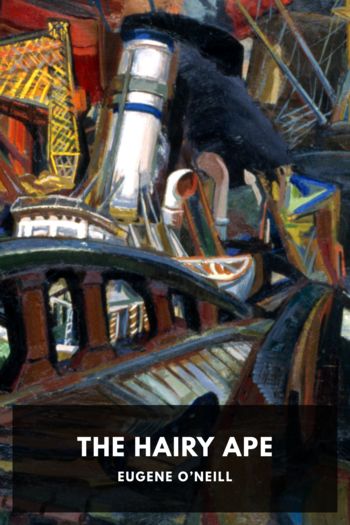The Atmospherians by Alex McElroy (reading fiction .TXT) 📗

- Author: Alex McElroy
Book online «The Atmospherians by Alex McElroy (reading fiction .TXT) 📗». Author Alex McElroy
seven
WHEN DYSON TOLD the story of his acting career, he referred to it as a time of exploitation and sabotaged promise. Hollywood’s sociopathic elites refused to give him the attention and support necessary to foster his obvious talent. They chewed him and chewed him until they stole every lucrative nutrient from his body—only to spit his leftover husk in the toilet.
Dyson did have talent, just not the type suited for the starring roles he believed he deserved. He excelled in the background and at the edge of the screen—passing by, blending in, skimming past—free from the demands of expressiveness and memorized lines.
When he moved to L.A., after high school, his first acting gigs came in the backgrounds of commercials, roles like Man waiting in line for a sandwich shop ad, Clapping soccer coach in a spot for a laundry detergent. In auditions for speaking roles, he fell prey to what he called “Temporary Lyric Aphasia.” His lines fled his memory like birds shaken out of a tree. On the rare occasions he remembered his lines—and the rarer occasions he recited them accurately—he still had trouble landing roles. This was, in part, a problem of appearance. Acne scars splotched his cheeks. Years of dangerous dieting made him pale and disconcertingly built, slender but wide, a spatula’s build. It wasn’t unusual for him to apologize for his proportions.
He called me in tears after every bombed audition and, though I knew his issues ran deeper than luck, I would assure him he’d been unlucky, that he’d crush his next audition. During this stretch of disappointments, however, a production company’s finance team uncovered his true talent during a quarterly audit: commercials in which he appeared outperformed those in which he didn’t. Measurements were taken, results charted and graphed. Focus groups shown nearly identical ads—the only difference was the inconspicuous presence of Dyson—preferred his commercials 97.4 percent of the time. In follow-up surveys, nearly 87 percent of participants reported purchasing the advertised products after the focus groups. No one at the production company could explain why his presence made consumers want to purchase the products, and though some employees theorized that his physical imperfections domesticated the ads, helped consumers see themselves using the products in their own lives, no true cause was ever determined. Profit motivated these companies. Dyson increased their profits. He was an answer freed of a question.
As news of his talent spread, Dyson received waves of offers for TV and film. Caked in grotesque makeup, he snarled and lurched against a fence the year The Walking Dead broke out. He passed Don Draper on the sidewalk in the pilot for Mad Men. He was lanced to death in the background of an early Game of Thrones battle. Or he lanced someone else. It didn’t matter what he did, only that he appeared—rather didn’t appear but existed discreetly onscreen. For three years in a row, the top-five-grossing films all featured Dyson in some capacity. He was Hollywood’s greatest asset—until he wasn’t.
His gift—the curse, he would say, when he spoke of that time—abandoned him as abruptly and inexplicably as it had arrived. He played a cashier in a laundry commercial shortly before the detergent was found to have mild flesh-eating properties. He landed the role of an intern carrying coffees on an acclaimed prestige TV show; a week later, its lead actor flashed his genitals at his costar. The director of a blockbuster film died of a heart attack on set the day Dyson showed up for filming. The film earned pennies on the dollar. The finance teams reviewed the numbers; they retested his commercials; they quit calling his agent. His agent quit answering his calls. And Dyson quit on the hope that he would ever be—had ever been—more than an extra.
He found work pouring stiff drinks for aging men at an Irish dive on the outskirts of L.A. These men complained to him about their bosses and children and wives (currents and exes and almosts) and the absolute lack of respect they received in their lives. They obsessed over respect—who respected them and who didn’t and who ought to show more of it—creating obtuse networks of propriety. Dyson catalogued their grievances like a librarian. The men were cranks, unlucky and embittered about it, but they shared an important trait: they were all of an age similar to his father. Dyson doted on them because he yearned to dote on his father. So he listened strenuously to his regulars. He complimented them. He nodded along to their monologues and their gripes. He even told them secrets about himself, shared his acting anxieties, anxieties about working so late—and alone—at the bar.
One evening, after he locked up, two men assaulted him as he walked to his car. They kicked him unconscious and broke into the bar using his keys. Dyson woke up in the hospital with three broken ribs. The assailants were regulars. After Dyson got out of the hospital, he was fired for being “so generous with his mouth.”
That afternoon—over lunch in the cabin, a few hours after meeting Art Flemings—was the first I’d heard of the attack. Dyson insisted he’d been too ashamed to tell me. Shame was far from a worthwhile excuse—shame had never silenced us before—and I felt snippy with him for hiding the attack from me. “So that must be why you’re doing this,” I said. “To get back at men like the men who jumped you.”
“Our men aren’t like that,” he said.
Sometimes the weight of Dyson’s naïveté threatened to crush me. All that separated





Comments (0)